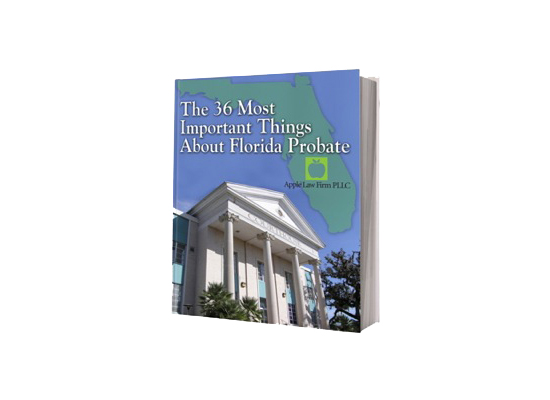LANDING SAFER
Legal Capacity of Settlor
One of the most important requirements to create a trust or a will in Florida is that the person creating a will or trust, called a settlor or a grantor, must have the actual legal capacity to create the instrument. Legal capacity can be a hard concept to define as the legal capacity needed often differs depending on what type of law is at issue.
Why is Legal Capacity is Important?
Legal Capacity is important because Florida law requires it for a will or trust to be valid. It is also important because if it is ignored it can have serious ramifications on the outcome of a probate case. Capacity can be a serious issue because it can actually invalidate a trust or will that was made while that person was not of sound mind. This means a person’s property could actually pass intestate, or according to Florida statutes, instead of how the settlor intended in his will or trust. Creating these documents while a person is of sound mind is important because the rates of dementia and Alzheimer’s disease continue to increase with a person’s age.
What is a Settlor?
As stated earlier, a settlor is a legal term that is used in Florida to refer to the person who actually creates a trust. This person can also be called a grantor, which is a term used more frequently outside of Florida.
The technical definition of the term settlor can be found in Florida Trust Code. The law defines a settlor as “someone who creates or contributes property to a trust”. If more than one person creates or contributes to a property to a trust, then each person is a settlor of the portion of the trust property he or she attributes, except to the extent another person has the power to revoke or withdraw that portion.
What Capacity Means in the Context of Wills and Trusts
While at first glance legal capacity can seem like an easy concept to grasp, it can actually be fairly challenging issue for courts in Florida to solve. Most definitions of legal capacity and diminished capacity can be fairly broad and subjective. For instance, Black’s Law Dictionary defines diminished capacity as an impaired mental condition short of insanity. As you might imagine a definition like this can create quite a gray area between what is sufficient legal capacity and what is not.
The good news is that Florida courts presume every person has the capacity to create a will or trust so long as that person has sufficient intelligence to understand the nature and effect of the transaction. The law further states that mere mental weakness does not amount to the inability of the person to comprehend the transaction. The mind must be so affected as to render the person incapable of understanding the nature and effect of the transaction.
Florida defines sound mind as the ability to understand the nature and extent of the property placed in the will or trust. The settlor must also be able to understand the persons who are the natural objects of one’s bounty, and the effect of the disposition of property. Florida also requires there must be no fraud or undue influence affecting the settlor’s capacity. A settlor must be 18 years old and be of sound mind at the time of the execution of the trust or will.
Capacity is a legal requirement for a guardianship in Florida as well. The determination of legal capacity in this context is transaction specific. The test is whether the person has the capacity to enter into the specific transaction. A Florida court will determine the nature and scope of a person’s incapacity and what specific rights the person is capable of exercising.
If you would like more information how the legal capacity or a settlor affects a trust you are associated with, CONTACT our Jacksonville Trust Lawyers by email or call us at 904-685-1200 to discuss your situation today.












